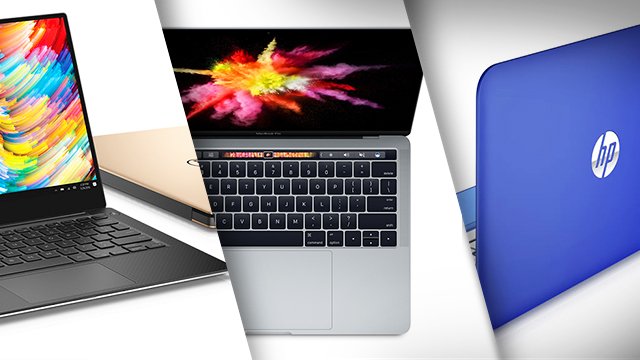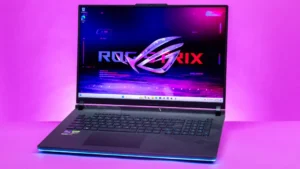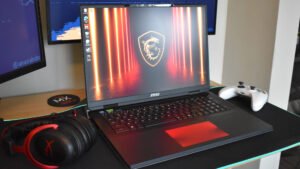Gaming laptops have come a long way from being bulky, power-hungry machines to sleek, high-performance devices capable of running the latest AAA titles and supporting creative workloads. With countless options in 2025, choosing the right gaming laptop can feel overwhelming. Do you prioritize graphics performance, portability, display quality, or battery life? The answer depends on your gaming style, budget, and personal preferences.
This ultimate buyer’s guide will walk you through everything you need to know about selecting the perfect gaming laptop. From processors and GPUs to displays and cooling systems, we’ll break down the essential features so you can make an informed decision that balances performance, value, and future-proofing.
Performance: The Heart of a Gaming Laptop
When it comes to gaming, performance is everything. Two components define a laptop’s gaming capability: the CPU (processor) and the GPU (graphics card).
- CPU (Processor): A powerful CPU ensures smooth multitasking and prevents bottlenecks. In 2025, Intel Core i7/i9 or AMD Ryzen 7/9 processors are excellent picks. For budget-friendly options, look for Intel Core i5 or Ryzen 5 CPUs.
- GPU (Graphics Card): This is the most critical component for gaming. NVIDIA’s RTX 40-series and AMD Radeon RX 7000-series GPUs dominate the market, providing ray tracing, AI enhancements, and future-proof performance.
Tip: If you’re into competitive esports titles like Valorant or CS2, you don’t need the most expensive GPU. But for AAA titles like Cyberpunk 2077, an RTX 4070 or higher is ideal.
Display: More Than Just Screen Size
Your laptop’s display plays a massive role in the overall gaming experience. Don’t overlook these factors:
- Resolution: Full HD (1080p) is still the most common, but QHD (1440p) offers a sharper experience without draining too much performance. 4K displays are excellent for creators but may limit high-refresh gaming.
- Refresh Rate: A higher refresh rate means smoother visuals. Aim for at least 144Hz, though many premium laptops now offer 240Hz or even 360Hz for buttery-smooth competitive gaming.
- Panel Type: IPS panels are popular for their color accuracy and viewing angles. OLED and Mini-LED displays are becoming more common, delivering stunning contrast and vibrant visuals.
For gamers who also create content, prioritize color accuracy and HDR support.
RAM and Storage: Powering Multitasking
Gaming laptops thrive on memory and storage.
- RAM: At least 16GB is recommended for smooth gaming and multitasking. If you also edit videos or stream, opt for 32GB.
- Storage: SSDs are a must. For gamers who install multiple large titles, a 512GB SSD is the minimum requirement, but a 1TB or larger SSD is ideal. Many laptops now offer dual-storage configurations (SSD + HDD) for flexibility.
Tip: Look for laptops with upgraded RAM and storage options to future-proof your device.
Cooling and Thermal Design: Staying Cool Under Pressure
Gaming pushes laptops to their limits, and overheating can throttle performance. Cooling systems matter more than most buyers realize.
Modern laptops feature dual- or tri-fan systems, vapor chambers, and advanced thermal materials to keep components cool. Brands like ASUS ROG, Alienware, and MSI excel in thermal management.
If you plan long gaming sessions or streaming marathons, prioritize a laptop with a strong cooling design. It ensures stable performance and extends the laptop’s lifespan.
Battery Life: Portability vs. Power
Gaming laptops are powerful, but they’re also demanding on battery life. Most high-performance machines last between 4 to 6 hours on standard tasks and much less while gaming.
If portability is important—say, you’re a student or a digital nomad—consider laptops like the ASUS ROG Zephyrus or MSI Stealth, which balance battery life with gaming performance. For desktop replacements, battery life is less critical since you’ll be plugged in most of the time.
Build Quality and Portability
Gaming laptops vary widely in design. Some are slim and stylish, while others are bold and bulky.
- Lightweight & Portable: Great for students or professionals who need performance on the go.
- Desktop Replacements: Larger, heavier models with top-tier specs and bigger displays. Perfect if portability isn’t a concern.
Durability is also key. Look for laptops with metal or premium plastic builds that can withstand daily use.
Connectivity and Ports
Streamers and creators often need multiple peripherals. Ensure your laptop has the right ports:
- USB-C and Thunderbolt for fast transfers and docking.
- HDMI or DisplayPort for external monitors.
- Ethernet for stable online gaming.
- Headphone/mic combo or separate jacks for audio.
Wi-Fi 6E and Bluetooth 5.2 are now standard in 2025, ensuring seamless connectivity.
Price and Value
Gaming laptops come in a wide range of prices:
- Budget ($800–$1,200): Good for casual gamers, offering decent GPUs like RTX 4050.
- Mid-Range ($1,300–$2,000): Balanced performance, often with RTX 4060 or 4070 GPUs.
- High-End ($2,000+): Premium builds with RTX 4080/4090, 4K displays, and creator-friendly features.
Set a budget, but also think long-term. Sometimes spending a little more upfront means your laptop stays relevant longer.
FAQs
1. What is the most important feature in a gaming laptop?
The GPU is the most critical component, as it directly impacts gaming performance. However, pairing it with a capable CPU, enough RAM, and a quality display ensures a well-rounded experience.
2. Should I choose a gaming laptop or build a desktop PC?
If portability matters, go with a laptop. If you want maximum performance and upgradeability for the best value, a desktop PC is better.
3. How long does a gaming laptop usually last?
With proper care, a high-quality gaming laptop can last 4–6 years before needing a major upgrade. Regular maintenance and avoiding overheating extend its lifespan.
4. Can I upgrade a gaming laptop later?
Yes, many gaming laptops allow RAM and storage upgrades. However, CPU and GPU upgrades are typically not possible, unlike desktops.
5. Do I need a 4K display for gaming?
Not necessarily. A QHD (1440p) display with a high refresh rate often provides the best balance of performance and visuals for most gamers.
Conclusion
Choosing the right gaming laptop in 2025 doesn’t have to be overwhelming. By focusing on key features—powerful CPU/GPU performance, a high-refresh display, sufficient RAM and storage, solid cooling, and a budget that fits your needs—you can find a machine that not only delivers incredible gaming experiences but also supports streaming, content creation, or everyday productivity.
Whether you’re a competitive gamer, a casual player, or a creator, the right laptop will be an investment that keeps you ahead of the curve. Make your choice wisely, and you’ll enjoy years of immersive, portable gaming.




